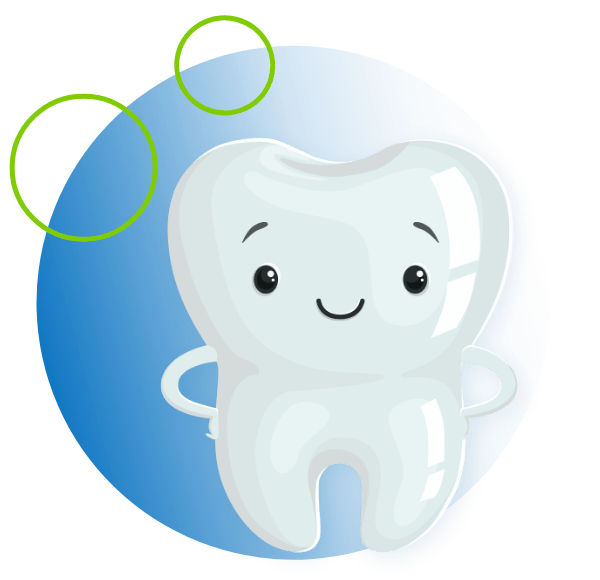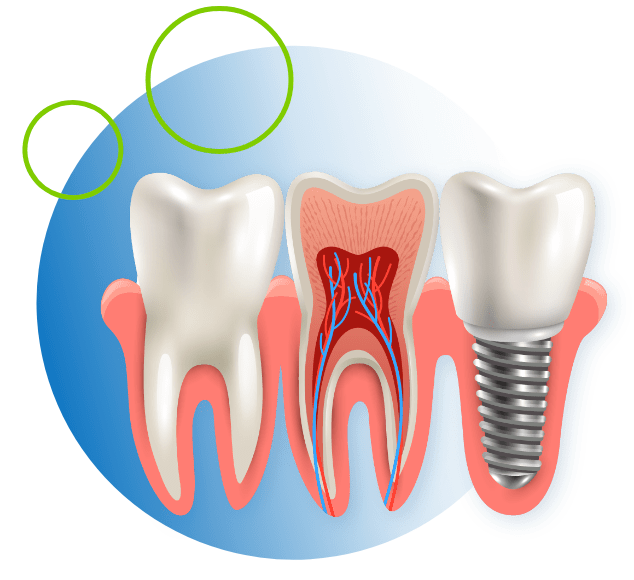Dentures
What Are Dentures?
Dentures are removable appliances which are used to replace missing teeth and tissues. They are artificial in nature, enables human beings to carry out normal functions of the mouth. Dentures are of two kinds- Complete and partial.
Complete dentures are used when all the teeth in a patient’s mouth are missing, and partial dentures are applied when some natural teeth are missing. They are custom made for each patient.
Complete dentures fit over the upper and lower jaw. They are the conventional dentures and should be removed at night for cleaning.
Partial dentures consist of replaced missing teeth attached to a metal framework for better grip. Missing teeth can cause malalignment of surrounding teeth, so usage of partial dentures is advised.

Types Of Dentures
Dentures can be made of porcelain and acrylic resin.
Porcelain dentures are aesthetically pleasing and looks more natural. But porcelain will break easily and can wear down the opposing natural teeth hence they are better used as complete dentures.
Acrylic resin dentures on the other hand are light in weight and easily adjustable. They can make the jaw movements smooth and easy.
What Is The Procedure Involved In Denture Placement?
Step 1
The dentist takes the impression of the jaws and analyzes the spaces and their relationship with various oral tissues.
Step 2
Wax models are made to check the fitting, various relations are figured out and patients are asked regarding the aesthetic concerns like color of teeth and fit of the mouth.
Disinfection and cleaning and shaping of the pulp canals is done. The infected tissues are cleared out completely.
Step 3
Final denture is fabricated.
Necessary adjustments are done according to patient’s wishes.

How To Take Care Of Your Dentures?
Clean Your Dentures
Always make sure that you have clean dentures. You need to brush your dentures with a non-abrasive brush once a day. Even though they are artificial, plaque and bacteria can build up causing bad odor, damage to gums and oral tissues. Remove your dentures after every meal if possible and rinse them with warm water.
Protect Your Denture During The Night
Soak the dentures in warm water or denture solution overnight to protect them from bacteria. Before putting them in your mouth in the morning, clean them with cold water to remove the remnants.
Monitor Your Dentures
Monitor your dentures carefully and look for cracks or signs of weakness. If the denture becomes loose or there is a change in the bite, immediately contact our dentists.
Do's And Don'ts Of Dentures?
Do's
- Soak dentures overnight.
- Rinse dentures before putting them in your mouth every time.
- Brush dentures daily with soft bristled toothbrush.
- Take care of your gums, tongue and oral hygiene.
Don'ts
- Do not try to bite hard food with front dentures.
- No abrasive usage during brushing.
- Don’t use a toothpick on them.
- Be careful, don’t drop them as they might break.

Common Myths About Dentures
It is difficult to eat with dentures on
Completely false. There is no restriction to eat anything if you take proper care of the dentures and your oral tissues
Lifetime solution
Not true, they may loosen over time because of physiological bone loss and lead to reduction of function ability and aesthetic sense.
People will know that you are wearing dentures
In recent times, dentures are constructed to replicate natural teeth. They are given the same color, shape and position of natural teeth so it is very difficult to understand if you have dentures.
Can be repaired at home
No, you need a dentist to repair broken dentures. Homemade solutions do not work well and causes damage to gum and oral tissues, further aggravating the problem.
